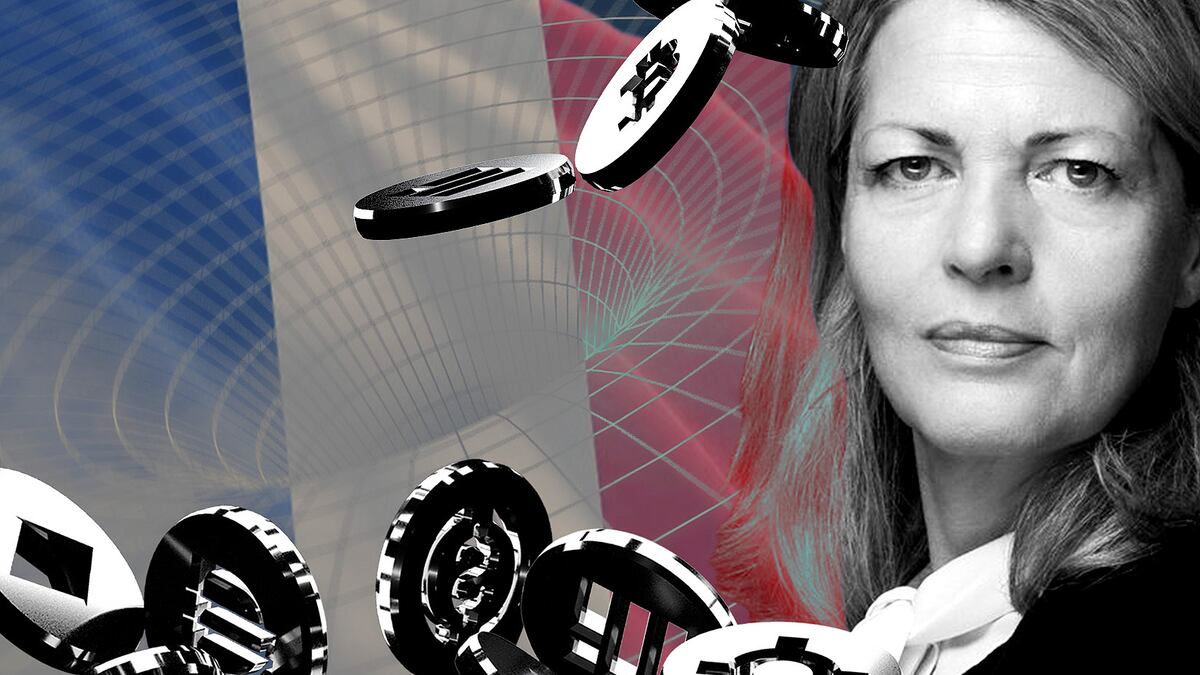- France wants to impose rules before EU crypto law goes live in 2025 to make Paris more attractive to startups.
- Web3 advocates worry that regulators don't have enough staff and funding to deliver on the promise.
- Crypto firms may 'venue shop' for EU states with advantageous tax regimes after MiCA is enforced.
At a Paris event set in the capital’s historical stock exchange in July, France’s top finance regulator Marie-Anne Barbat-Layani delivered a message to the crypto industry: a promise to support the burgeoning sector in France.
Barbat-Layani, president of the Financial Markets Authority (AMF) unveiled the agency’s strategy for the next four years, in a “new phase” that “reaffirms our positioning as a regulator open to innovation.”
Macron’s plan
Shifting national laws for crypto into the European Union’s new rulebook is on the priorities list. And direction comes from the Elysee Palace: President Emmanuel Macron pushed policies to give the industry a competitive edge, like cutting taxes on crypto profits, or establishing a two-tier registration system.
Indeed, France has attracted industry giants like Binance, Crypto.com, and Circle. But some worry that regulators won’t have the tools or resources they need to meet Paris’ ambitions.
NOW READ: SG Forge’s new crypto licence may ‘fast-track’ its way to EU market
“The problem that we have is that there was a strengthening of the French regulation,” Faustine Fleuret, president of France’s biggest crypto trade association, Adan, told DL News. “But the authorities which have to study the new obligations and supervise the actors do not have the resources.”
MiCA incoming
France and its fellow European Union member states are now preparing for the Markets in Crypto-Assets regulation, or MiCA, which is poised to regulate crypto firms when it goes live in 2025. MiCA will increase the pressure on financial regulators across the bloc.
But France isn’t waiting around. Regulators are cranking up their crypto laws ahead of MiCA. After the collapse of FTX last November, French authorities called for more rigorous oversight of crypto firms.
NOW READ: The next job for EU regulators: making sure Binance and other crypto giants don’t game MiCA
With MiCA looming, firms are already thinking about which country to get their licence in. Experts are pointing out that firms may flock to France if they believe complying with the current legislation may speed up their access to the European market, DL News learned last week.
Since July, companies seeking the AMF’s approval have to meet higher standards if they want to serve French consumers. This puts the onus on regulators to step up.
We are not trading securities, we are not in the same space. It is not the same investors, not the same generation. Be ready for change’
— Anne-Sophie Cissey, head of legal and compliance at Flowdesk
“There are still very few people who are able to devote their time to [crypto asset service providers] at the level of French authorities, meaning that it could extend delays that are already too long,” Fleuret said. Waiting for a licence equals losing business, she highlighted.
The AMF declined to comment on the issue of resources.
Venue shopping
If the AMF doesn’t step up staff and funding, some worry this could become a disadvantage for France when MiCA kicks in. The framework allows firms to get licensed in one EU member state, and then passport across the entire bloc.
NOW READ: Binance’s German license pullback may be ‘strategic choice’ as MiCA looms
More hands on deck may be needed to work through the pipeline of AMF licence applications, Fleuret said. Some countries could be more attractive “if you know that you can get your licence in three months elsewhere rather than one or two years,” she said.
Others are also not convinced France will be attractive to everyone.
“When we will have MiCA, we know that the interpretation in France will be stricter than for example the Netherlands,” said Anne-Sophie Cissey, head of legal and compliance at web3 market maker Flowdesk.
Like Everest
Registering with the AMF is “like the Everest,” Cissey said. “It is a mountain to climb and when you are registered with them, you know it is a high standard.”
Taxes could also influence where companies chose to settle, Cissey told DL News. Venue shopping is likely to happen “if the tax regime is better in one of the other countries,” she said.
‘Be ready for change’ in US
Overall, the industry in France is counting its blessings to have a responsive regulator, even if applications often take over a year.
“The AMF may be under-resourced, but in Singapore, people can wait four years without any news from the regulator,” said Cissey. “In France you can expect an answer in a shorter period, and at least confirmation they’ve received your message.”
At the same time, Flowdesk’s clients are fleeing the crypto crackdown in the US, where lawsuits naming various crypto assets unregistered securities spew from government agencies.
Although, a regulatory path may be clearing up as bills make their way through congress.
NOW READ: Coinbase CEO joins crypto industry in celebrating ‘historic day’ as bill passes committee hurdle
Turmoil stateside also caught the attention of the AMF president, who questioned the success of the series of litigations against crypto assets and firms.
This comes down to American regulators treating crypto like traditional financial instruments.
“It is a different choice than the one made in Europe,” AMF chief Barbat-Layani said in French, referring to MiCA.
Cissey is also keeping an eye on US affairs, and is active in responding to US authorities’ call for recommendations from the industry. “We say: We are not trading securities, we are not in the same space. It is not the same investors, not the same generation. Be ready for change.”
Do you have a tip about European crypto policy? Reach out to the author: inbar@dlnews.com.





